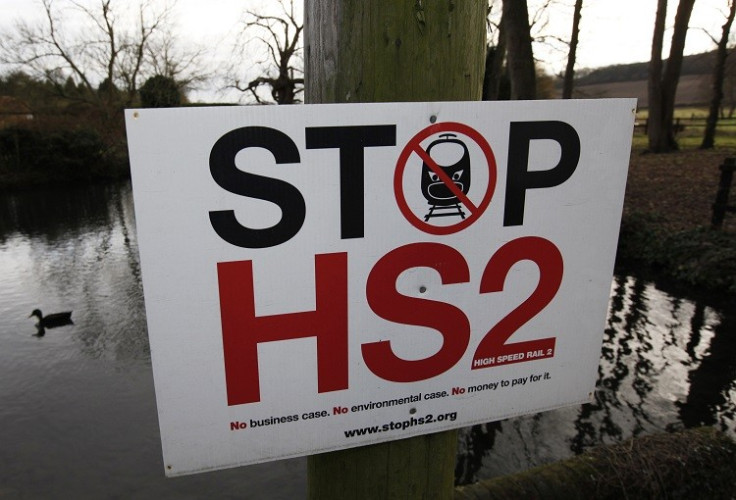HS2: MPs Launch Scathing Attack on £50bn High Speed Rail Project

High Speed 2 has come under renewed fire from parliament as a report by MPs says the Department for Transport has made decisions based on "fragile numbers, out-of-date data and assumptions which do not reflect real life."
A report by the Public Accounts Committee (PAC) is the latest in a string of assaults on the vast rail infrastructure project that will provide quicker rail links between London, the midlands and the north, with some even calling for HS2 to be scrapped.
The PAC said the project's costs have spiralled, but economic benefits dwindled. It also said the DfT has failed to provide a convincing strategic case for HS2, the timetable for getting related legislation through parliament is too ambitious and unrealistic, and there is a skills shortage at the department in the team working on the plan.
"It has not yet demonstrated that this is the best way to spend £50bn on rail investment in these constrained times, and that the improved connectivity will promote growth in the regions rather than sucking even more activity into London," said Margaret Hodge MP, chairwoman of the PAC.
Among the problems highlighted by the PAC was the lack of WiFi on HS2 trains. Modern business needs require internet access on travel routes. The PAC said decade-old survey data was being used by the DfT.
DfT officials want to send the High Speed Rail Hybrid Bill, which would give them the statutory powers they need to build the new line, to parliament by the end of 2013, with the aim of receiving Royal Assent by the end of March 2015.
"The Department has ambitious and, in our view, unrealistic, plans for passing the Bill for High Speed 2," said Hodge.
"The timetable is much tighter than for either High Speed 1 or Crossrail, despite the fact High Speed 2 is a much larger programme. In my Committee's experience, not allowing enough time for preparation undermines projects from the start."
On the proposed HS2 network, trains would be able to hit speeds of up to 250mph. According to the HS2 website, this would cut journey times from London to Birmingham from 84minutes to 49. It would also cut the journey time from the capital to York from 113 to 83 minutes, to Liverpool from 128 to 96 minutes, and to Edinburgh from 263 to 218 minutes.
Work on the London-Birmingham link, which is the first phase of the HS2 plan, will not be complete until 2026 on the current timetable. The whole project will not be wrapped up until 2035.
The government claims that there are significant economic benefits to be reaped by speeding up the links between major UK cities. Its estimates say there are £2 of economic benefits for every £1 invested.
Official figures also show that HS2 will provide £63.6bn in user and wider economic benefits once all the work is complete.
HS2 Criticism
Alistair Darling, the former chancellor who signed off HS2's original budget, has said the project is becoming too expensive as costs build and it should be dropped altogether.
"To commit ourselves to spending so much on a project that rules out any other major schemes seems foolish. And the costs are not yet nailed down," he wrote in The Times.
"The facts have changed. The case for HS2 was just about stateable in 2010. I don't believe it is today."
A report by the Institute for Economic Affairs (IEA) thinktank claimed the cost would soar to as much as £80bn
"It's time the government abandoned its plans to proceed with HS2," said the IEA's Dr Richard Welling.
"The evidence is now overwhelming that this will be unbelievably costly to the taxpayer while delivering incredibly poor value for money."
Leading business lobby group the Institute of Directors (IoD) said a survey of 1,323 of its members showed that just 27% thought HS2 would bring value for money, while 40% said it would be important to their firms - a fall of 14% on a previous poll.
Simon Walker, IoD director general, dismissed HS2 as a "grand folly".
© Copyright IBTimes 2025. All rights reserved.






















